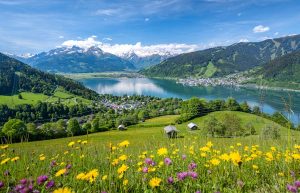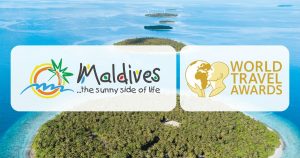

Earlier this week, IMTM hosted a weekend full of lively discussions on sustainable tourism in the Maldives. The 2-day Sustainable Tourism Forum (STF) was held on 3rd and 4th of December 2022. IMTM is pleased to announce the forum was a brilliant success, with many like-minded participants sharing their enthusiasm and passion, and a positive and thriving environment all around.
The forum brought together various tourism sector stakeholders, including resorts, guesthouses and liveaboards, private sector tourism related businesses, independent institutions, the United Nations, UNDP, ministries, scientific and academic bodies. It encouraged a multi-sector conversation and collaboration towards a common goal: sustainability.
This year, STF explored the theme “What is Sustainable Tourism? Interpretations and Discourses of Sustainable Tourism in the Maldives.” This forum offers a timely contribution to the Maldives’ tourism sector, which is celebrating its 50th anniversary this year. It is a crucial time to reflect on the important lessons offered from our experiences and understand how we may improve to ensure tourism and its benefits are sustained for future generations.

STF 2022 sought to gain insight into the tourism sector’s stakeholders’ understanding of sustainability, and how they practice it. With this, STF set out to define sustainable tourism establishments in the country. The primary objective of the STF was to identify and develop a criterion for sustainable tourism establishments in the Maldives. A policy paper on the findings and recommendations from the forum will be published early next year with the hopes of strengthening sustainability in the Maldives. This paper will be presented to government offices, NGOs, associations, and other tourism related establishments.
Session One: Concepts, Trends and Policies Relating to Sustainable Tourism
The forum discussions were kicked off by presentations from the two moderators, Ms. Aishath Azfa and Ms. Aminath Shadhun. Ms. Azfa shared her expertise as a Sustainable Development Specialist in her presentation, Tourism Sustainability: Changing Concepts and Trajectories. She highlighted how tourism has been a way forward with economic development, which has come at a cost to the environment and natural resources. This indicates the way in which development is implemented plays a critical role.
Her presentation touched on many key areas of sustainable tourism, providing valuable insight into the industry. For instance, whilst we have seen a surge in local tourism with an increasing number of guesthouses and job opportunities, we have yet to witness equal women representation in the tourism sector. One main problem is that many guesthouses cut down costs by having only one employee – usually a man – to manage everything. This culture and way of thinking needs to change. With tourism expanding to all the local islands, it is important that these tourism services provide equal opportunities and benefits for everyone.
In addition to this, Ms. Azfa emphasised the issue of waste management. According to her findings, the tourism sector is one of the highest contributors to waste, with one tourist producing an average of 3.5kg of waste per day. This shows the need for a solution to waste management, including the development of waste management facilities and infrastructure, especially on islands where local tourism is practiced.
Furthermore, Co-Moderator, Ms. Shadhun spoke about the development of tourism in the Maldives, bringing in her knowledge as a Sustainable Tourism Specialist. One of her key messages was that sustainable tourism is not a type or form of tourism, but rather a philosophy. In order to achieve sustainability, a set of principles and guidelines need to be in place to ensure all the stakeholders are on the same path, and everyone’s understanding of sustainability is aligned.
Ms. Shadhun discussed the tourism policies and Master Plans in the Maldives, highlighting the importance of having a framework for sustainable tourism at a policy level. She noted sustainable development of tourism requires sustainable financial management and integration of other related sectors. She also noted the Maldives was awarded the title of the World’s Leading Destination for the third consecutive year, but the Maldives has the capacity to be more than this – it can become a leader amongst small island nations for Sustainable Tourism and this is a goal we must strive to achieve.
Session Two: Presentations
The second session of the forum was divided into three sub-themes according to the participants’ presentation topics: Sustainable Oceans; Sustainability in Practice, and Working in Local Communities. The presentations were delivered by eight external speakers from the tourism industry who had volunteered to share their experiences at the forum. The focus of these presentations was to get an insight into how each entity defines sustainability and the work they do to promote sustainable practices. Each sub-theme was followed by a panel discussion during which time the audience were able to ask the speakers questions, resulting in interactive and lively sessions.
Sub-theme One: Sustainable Oceans
Ensuring Sustainable Resort Coral Reef Fisheries in the Maldives
Jake Edmiston and Afaaz Zahid, Blue Marine Foundation
Moosa Zameer Hassan and Dr. Shaistha Mohamed, NooRaajje
Plotting a Course Towards Sustainable Nautical Tourism,
M.H Jiffry, Maldives Holiday Collection
Sub-theme Two: Sustainability in Practice
Rafaella Colleoni, The Barefoot Eco Hotel
Fairmont Maldives Sustainability Lab
Samuel Dixon, Fairmont Maldives Sirru Fen Fushi
The Sustainable Side of Life
Amandine Vuylsteke, Raffles Maldives Meradhoo
Sub-theme Three: Working in Local Communities
Community Based Tourism
Ruth Franklin, Secret Paradise Maldives
Unforgettable and Sustainable Experiences
Hugo Pedrosa, Ecoboo Maldives.
The two days of the forum made evident that all the participants were united in their belief in furthering sustainable tourism. Whilst tourism has been a catalyst for economic growth, its adverse impacts have gone unregulated for too long. The need for well-managed strategies that place environmental protection and sustainable practices at the forefront is imperative. The first day of the forum saw presentations on sustainable tourism in practice and panel discussions, followed by a second day of group work and debates on criterions for sustainable tourism. The conversations throughout the forum were passionate and thought-provoking, reflecting great energy and collaboration from all the participants.

IMTM is delighted with the outcomes of STF 2022, but this is only the beginning of its work. The policy paper will be drafted and sent to the participants for their input before it is published in early 2023. It is evident there is strong support for sustainable tourism in the Maldives and we hope more and more people will recognize its importance. There is big role for the government and its authorities to play to foster the mindset of the people and youth to make sustainable development a part of everyday life. Sustainability should not be an afterthought; it is a need. A key takeaway from STF 2022, as coined by Ms. Amandine from Raffles Maldives: Maldives is the sunny side of life… but it can also be the Sustainable Side of Life.



